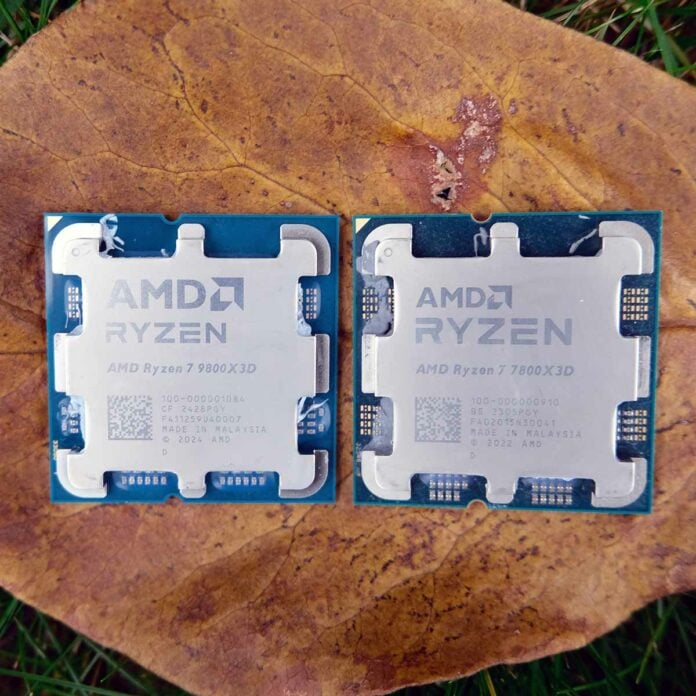Debate as to which consumer CPU is best for gaming has been settled with the launch of AMD’s Ryzen 7 9800X3D CPU. Using the latest Zen 5 architecture mated to a physical redesign where the extra 64MB of performance-boosting X3D cache is laid out below the processor cores for enhanced thermals and higher frequencies, the eight-core, 16-thread chip is also pretty good at general productivity tasks.
Read my review to get a lowdown on how it performs against a bevy of other high-performance processors in myriad applications. Yet many for many gamers, the choice of CPU boils down to treading the X3D path alone.
One question on many lips during the build-up to the latest cache-infused processor is whether it provides a meaningful shot in the arm over Ryzen 7 7800X3D. This guide will answer precisely that question.
| Ryzen 7 9800X3D | Ryzen 7 7800X3D | |
|---|---|---|
| Release date | November 2024 | April 2023 |
| Platform | AM5 | AM5 |
| Cores | 8 | 8 |
| Threads | 16 | 16 |
| TDP | 120W | 120W |
| Architecture | Zen 5 | Zen 4 |
| L2 Cache | 8MB | 8MB |
| L3 Cache | 96MB | 96MB |
| Base clock | 4.7GHz | 4.2GHz |
| Boost clock | 5.2GHz | 5.0GHz |
| Launch MSRP | $479 / £450 | $449 / £450 |
If you recall, both chips are outfitted with a 120W TDP. That only tells half the story, mind, as the latest Ryzen stays at higher frequencies for longer. AMD is able to drive more voltage to CPU cores because of X3D cache relocation. My benchmarking shows Ryzen 7 9800X3D maintains north of 5.2GHz in an all-core state, compared to merely 4.8GHz on Ryzen 7 7800X3D.
Furthermore, differences in productivity are magnified because Zen 5 adds additional IPC muscle over Zen 4 used in 7000 Series. Plenty of ticks in the 9800X3D’s box.
The pair runs on the same AM5 platform, of course, so the choice is straightforward enough for the budding upgrader. I evaluated them back-to-back last week on Windows 11 24H2 26120 to minimise driver- or platform-level inconsistences.
Benchmarks
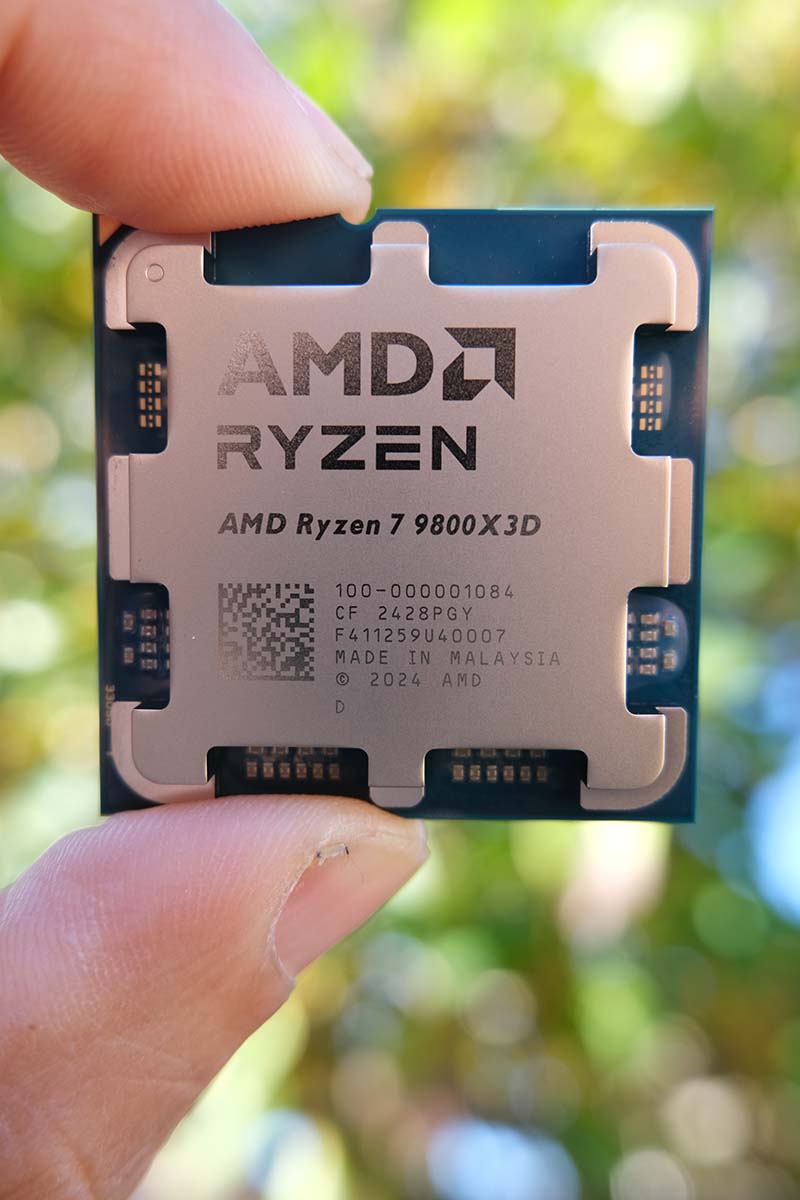
Ryzen 7 X3D Test PC
Club386 carefully chooses each component in a test bench to best suit the review at hand. When you view our benchmarks, you’re not just getting an opinion, but the results of rigorous testing carried out using hardware we trust.
Shop Club386 platform components:
CPU: AMD Ryzen 7 7800X3D and 9800X3D
Motherboard: MSI MEG X670E ACE
Cooler: Arctic Liquid Freezer III
GPU: Zotac GeForce RTX 4090
Memory: 64GB Kingston Fury Beast DDR5
Storage: 2TB WD_Black SN850X NVMe SSD
PSU: be quiet! Dark Power Pro 13 1,300W
Chassis: Fractal Design Torrent Grey
App Performance
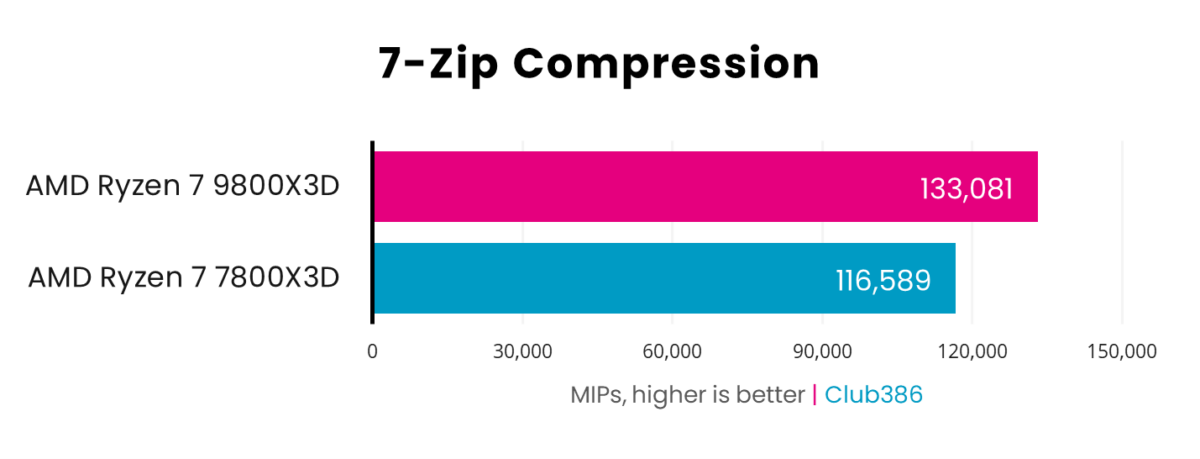
Generally speaking, the more sensitive an application is to cores and architecture, the larger the difference between the pair. Off the bat, I see a 14% improvement for Ryzen 7 9800X3D. Perusing logs shows most of this comes by way of additional frequency headroom rather than gains from Zen 5.
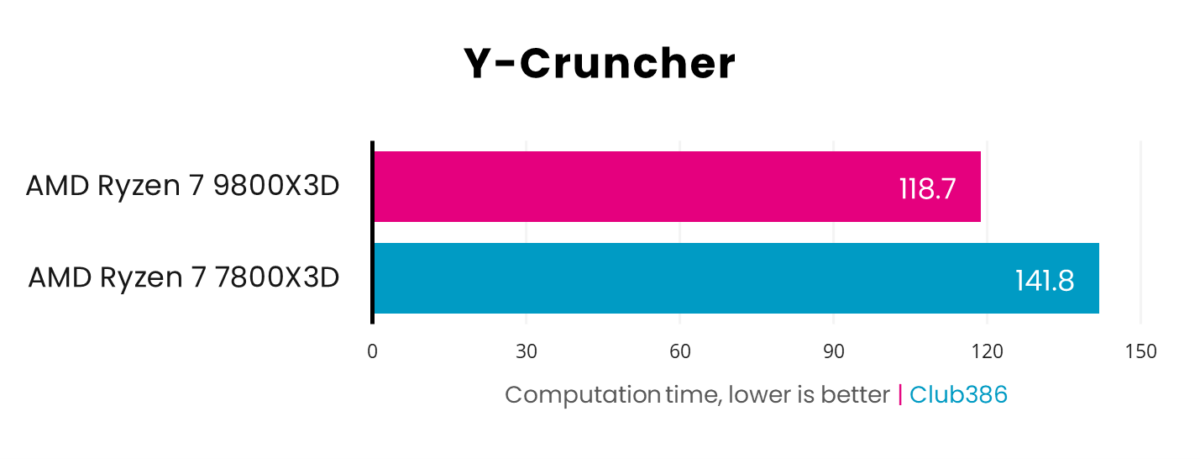
Ryzen 7 7800X3D takes over 19% longer at computing the constant to five billion places. A good proxy for mathematical workloads, the uplift is significant enough to be noticeable if you do this kind of work regularly.
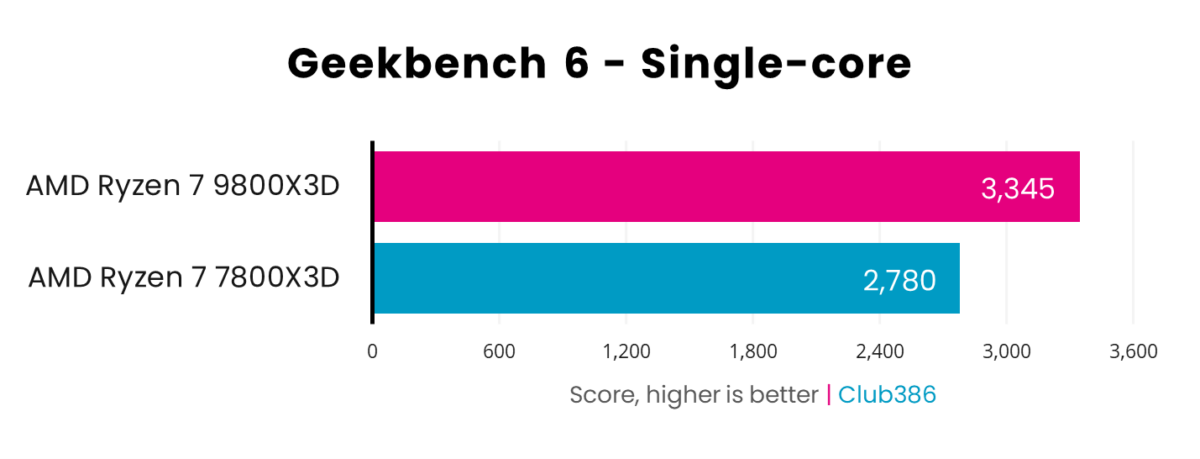
Here’s architecture and frequency working in tandem to deliver a larger performance jump. It’s over 20% in this instance. Hooray for 9800X3D.
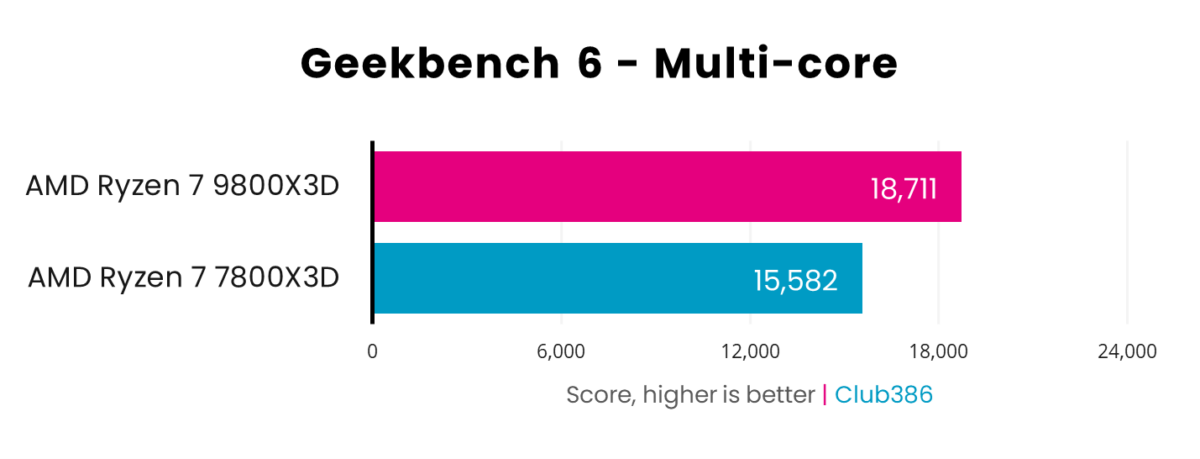
AMD’s Ryzen 7 9800X3D feels like the first unencumbered high-cache chip to me. Compared to non-X3D offerings, there’s no compromise in frequency.
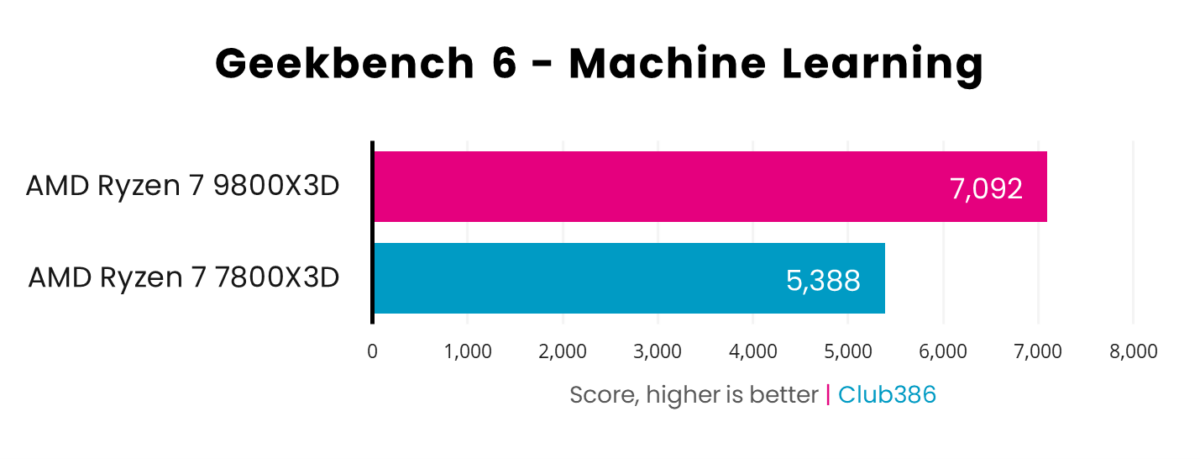
Commentators like me often bemoan single-digit performance increases from one generation to the next. In fact, it’s become a hallmark of the x86 ecosystem for a while now. This is why it’s nice to see 30% bumps when one model effectively replaces another.
Content Creation
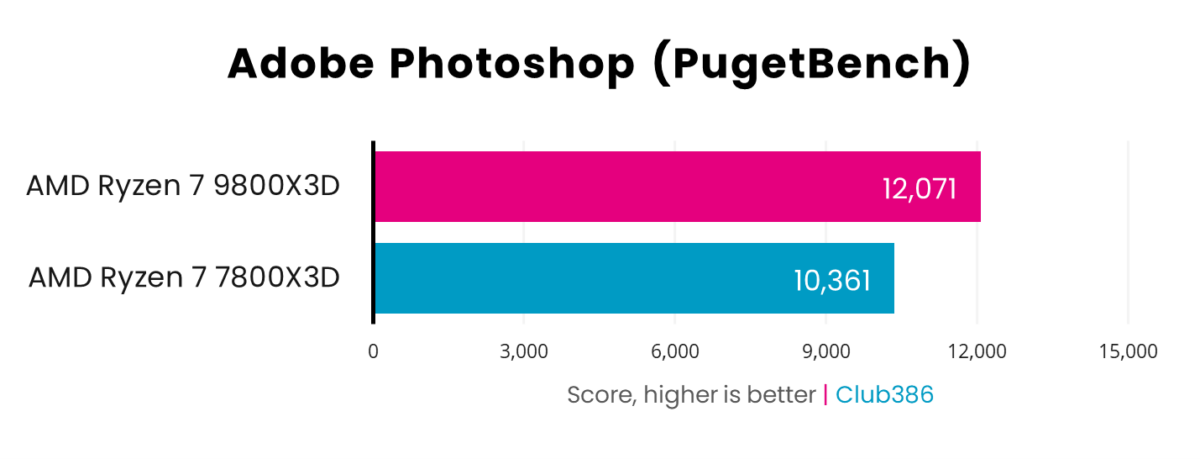
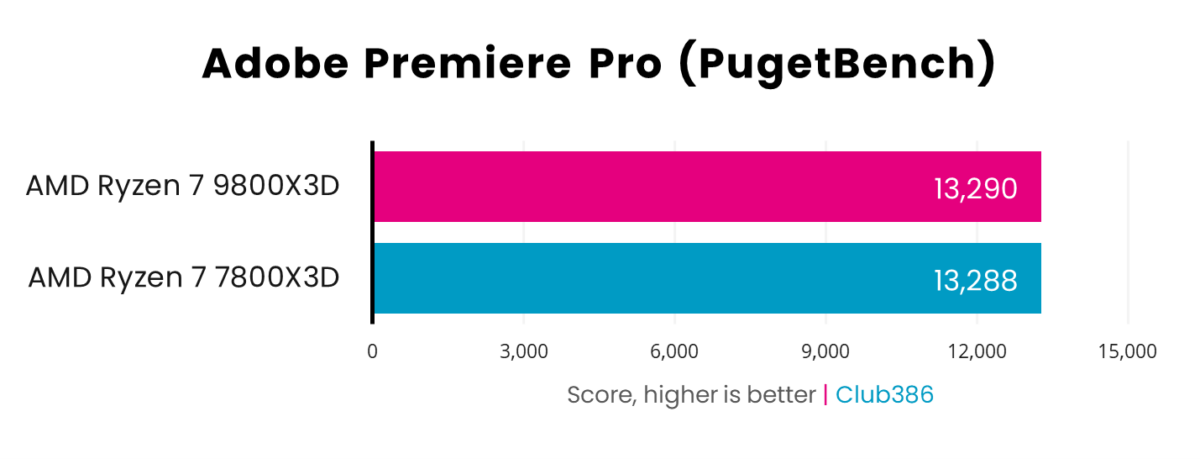
Adobe Photoshop is clearly more partial to Ryzen 7 9800X3D’s manyfold improvements.
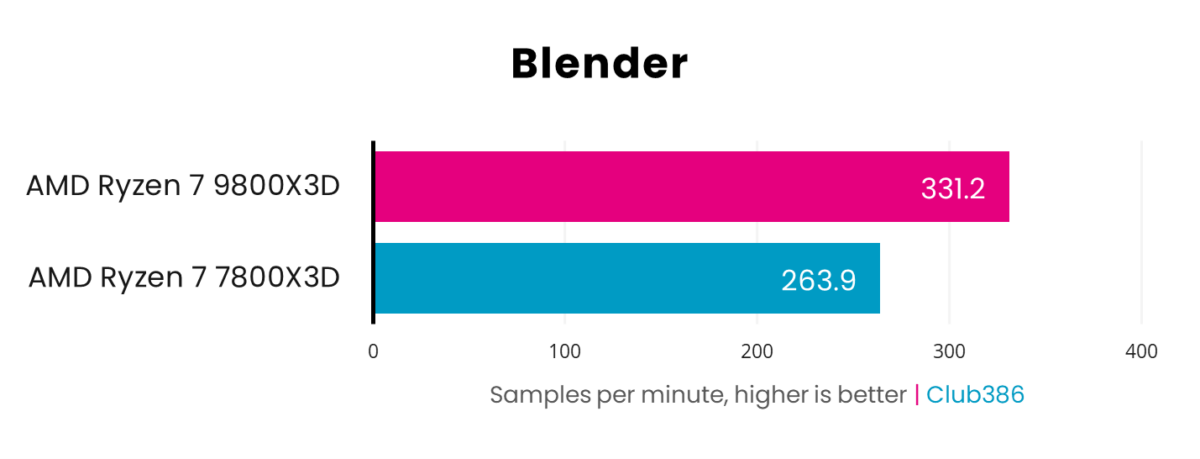
Club386 readers will remember I lamented Ryzen 7 7800X3D’s peak frequency when all cores were called into action. No such issue for Ryzen 7 9800X3D, enabling it to beat up on its direct predecessor to the tune of 25%. Bish, bash, bosh.
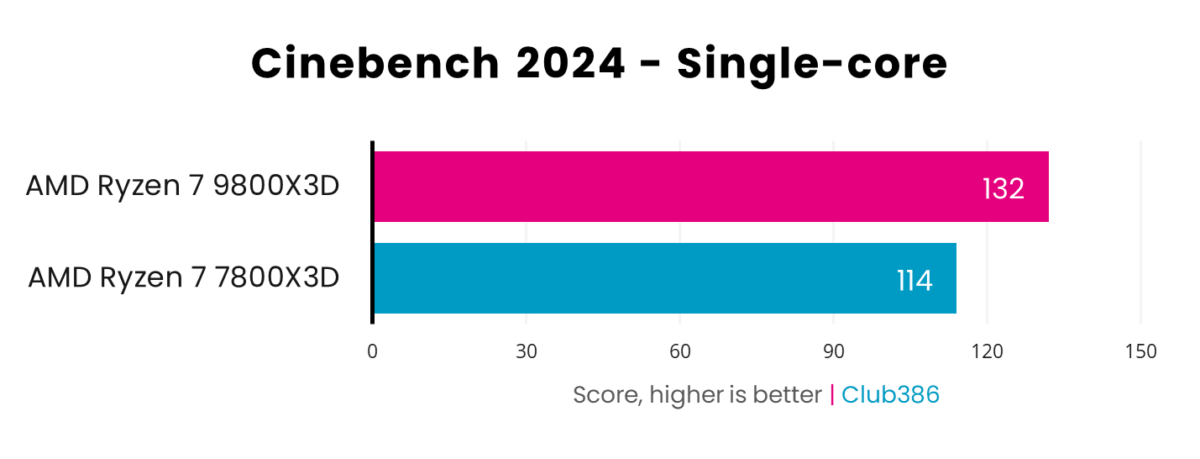
This result speaks to Zen 5’s IPC power against Zen 4.
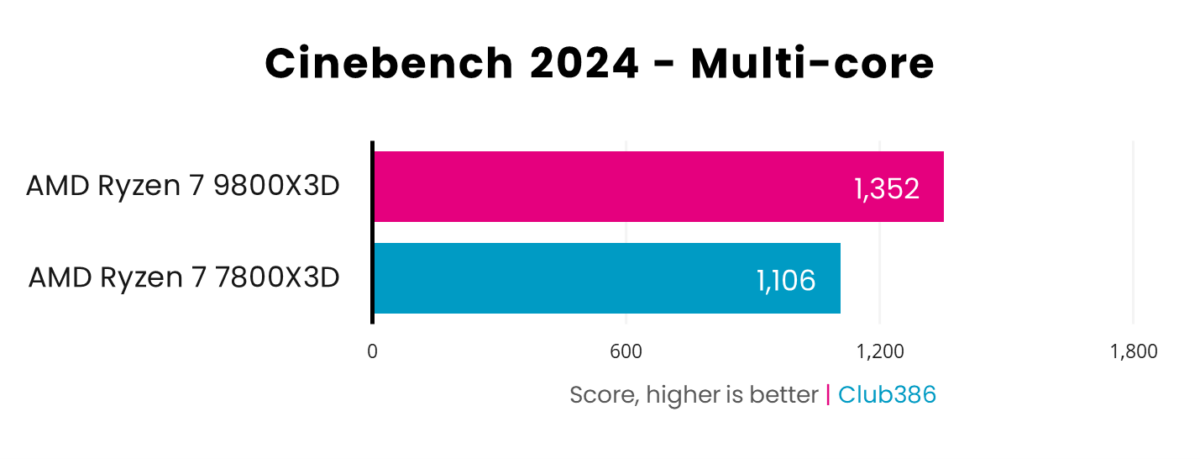
And this one builds frequency into the mix. Looking across to Intel, Ryzen 7 9800X3D’s multi-core performance is about the same as Core i5-14600K.
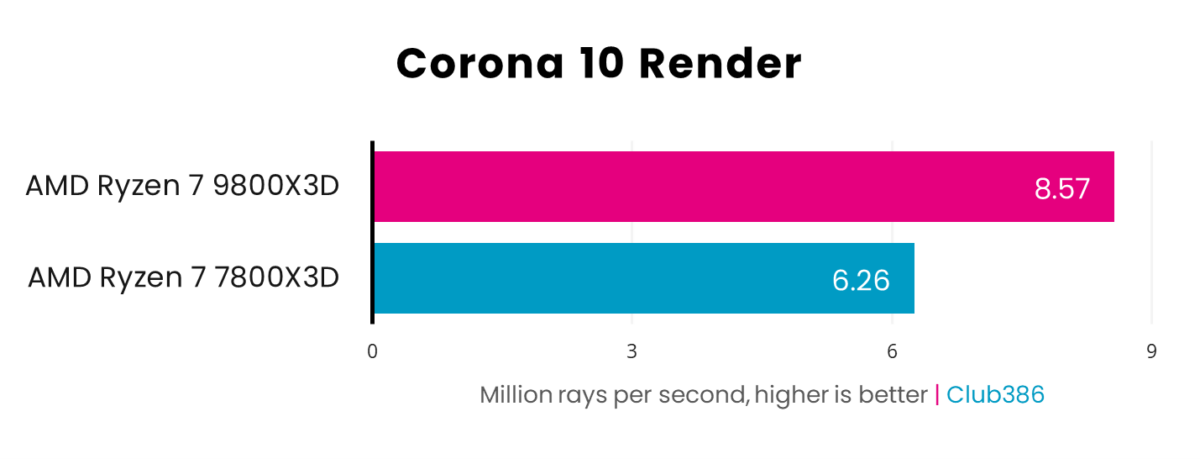
Ryzen 7 9800X3D maintains clear performance hegemony in Corona 10 Render. A 37% generational improvement is the best I’ve seen thus far.
Memory
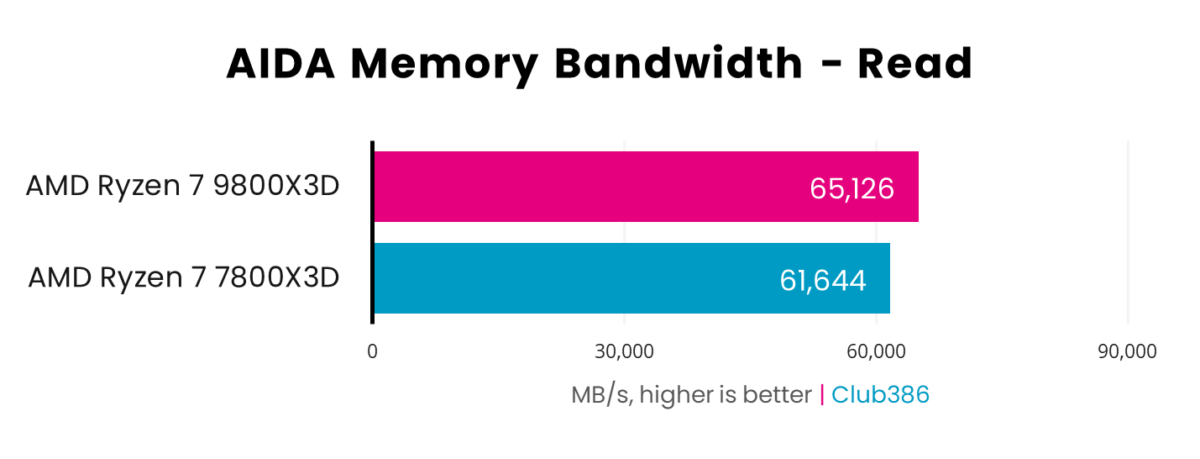
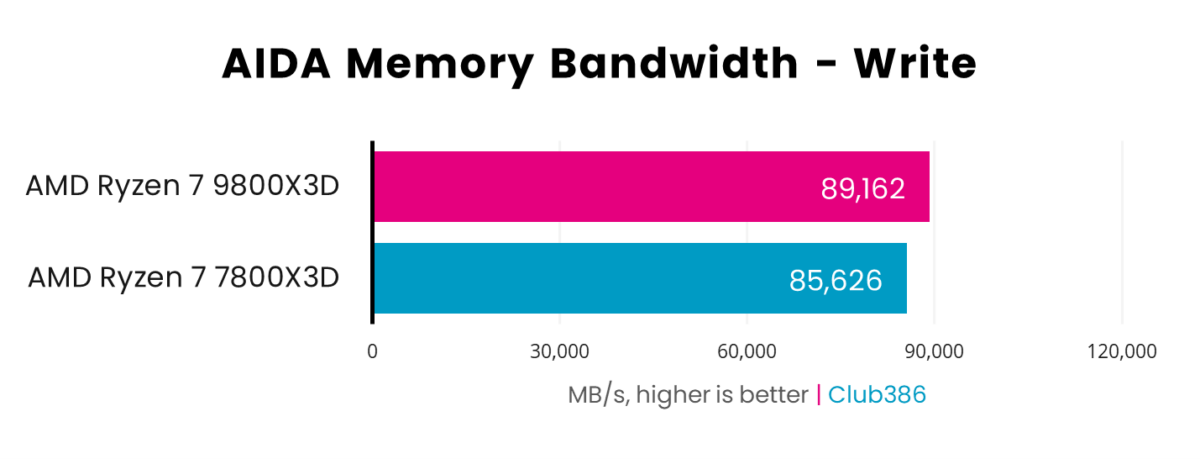
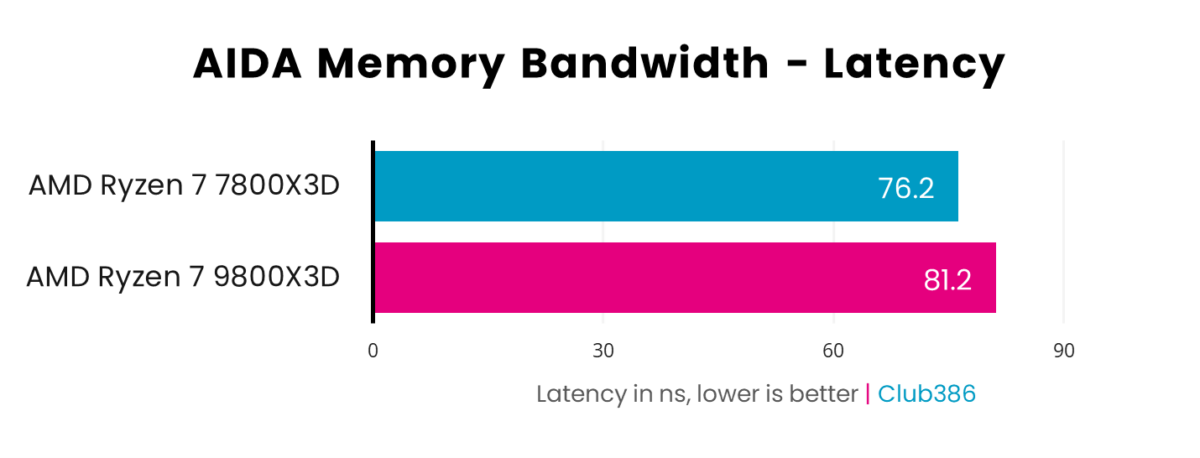
Both chips are outfitted with exactly the same memory, which in this case is 64GB of Kingston DDR5-6000 CL36.
Gaming
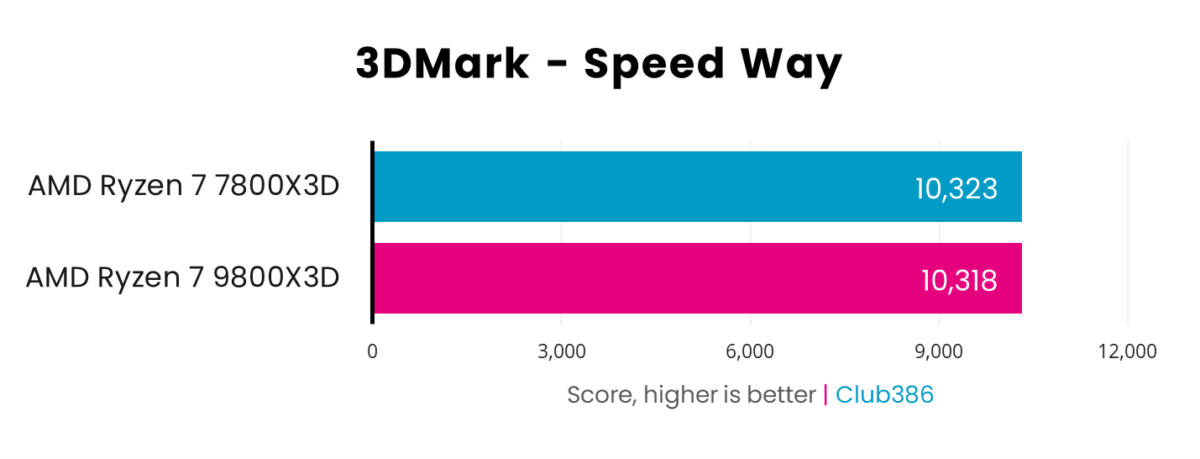
My first gaming benchmark has them neck and neck.
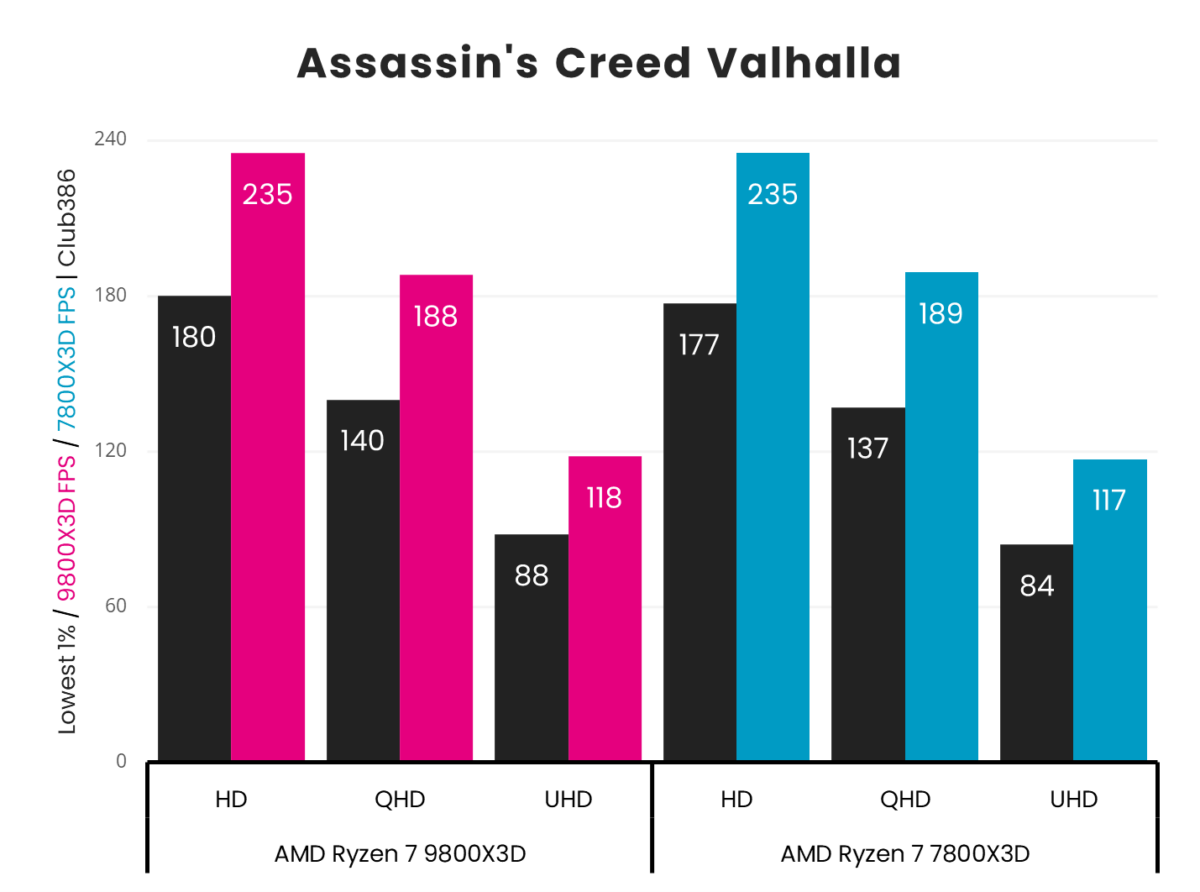
A GeForce RTX 4090 helms graphics and ought to provide enough firepower to discern framerate differences at FHD. What’s clear is Assassin’s Creed Valhalla treats both X3D equally.
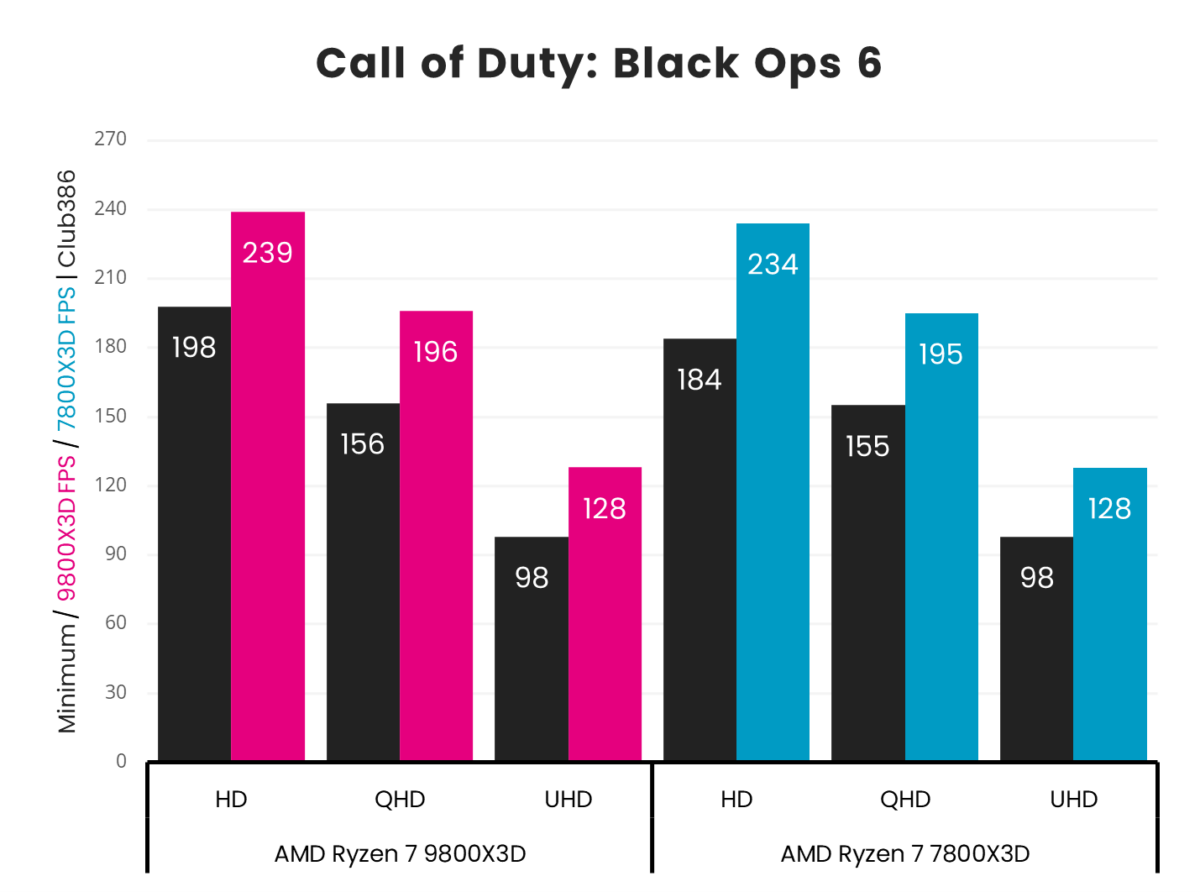
You’ve probably been playing Call of Duty: Black Ops 6. Know that while Ryzen 7 9800X3D ekes out a small lead at FHD and QHD, there’s nothing much in it.
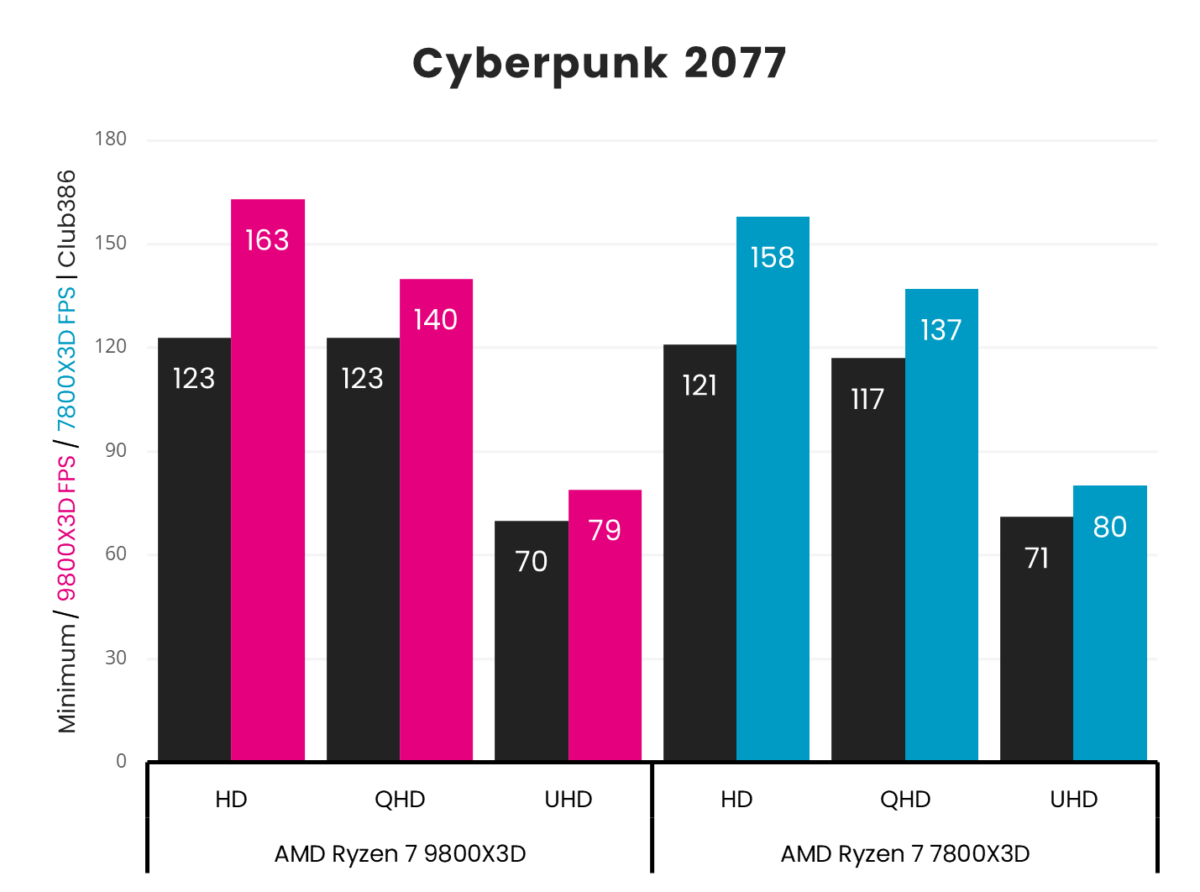
Let me remind you Ryzen 7 7800X3D is a great gaming CPU. Improving upon it isn’t easy because Ryzen 7 9800X3D’s better all-core numbers and higher frequencies don’t count for quite so much. Nevertheless, the best X3D is the fastest to run Night City.
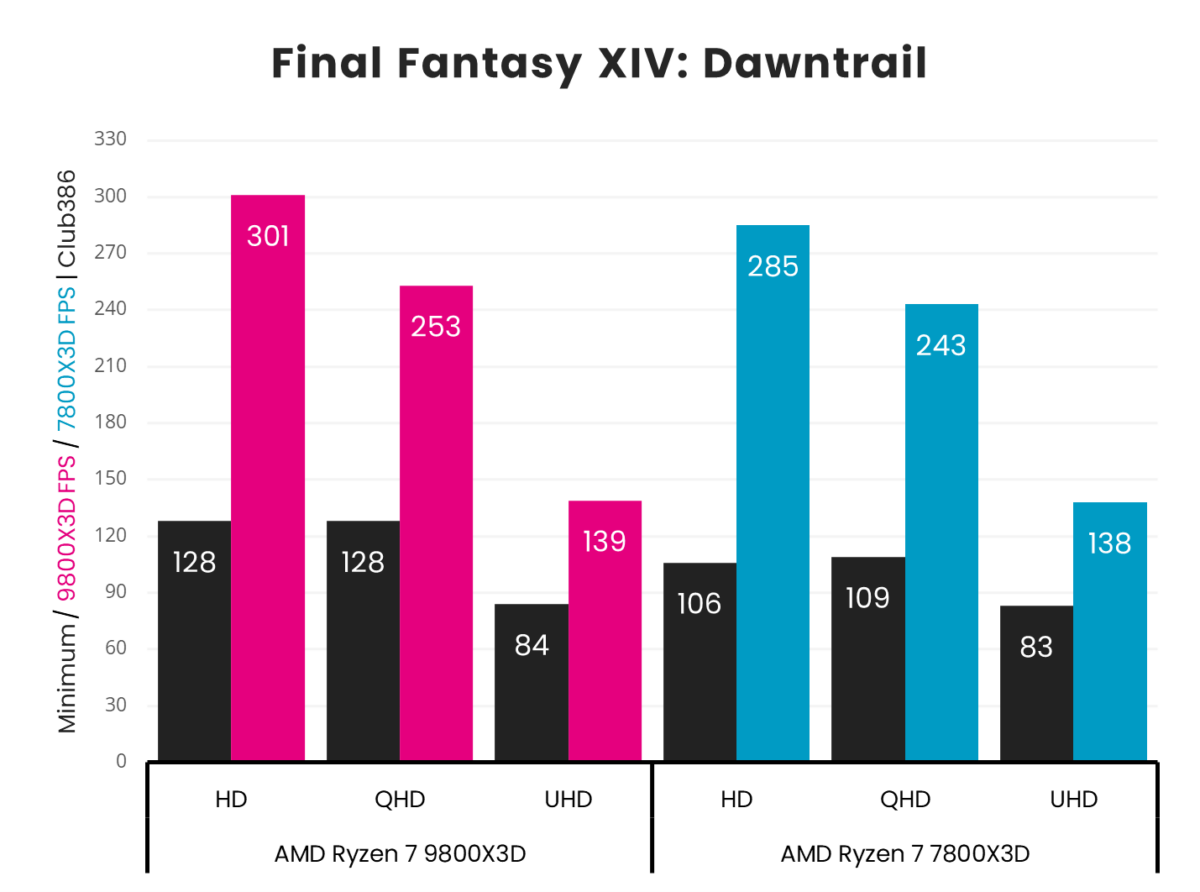
Welcome to the 300fps FHD club, Ryzen 7 9800X3D. It’s a club of only one; no other processor gets close to entry.
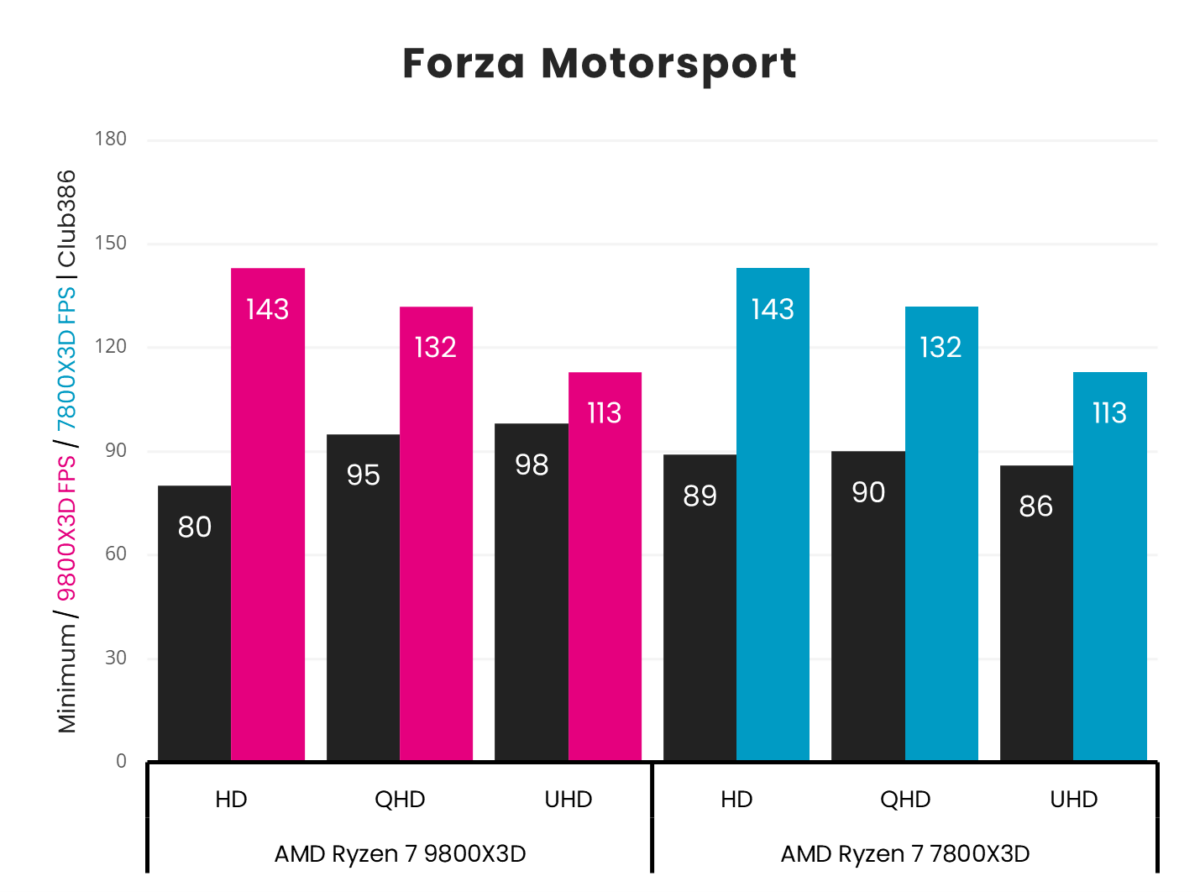
Forza Motorsport is firmly entrenched in the I-don’t-care-about-CPU camp; average framerates are absolutely identical.
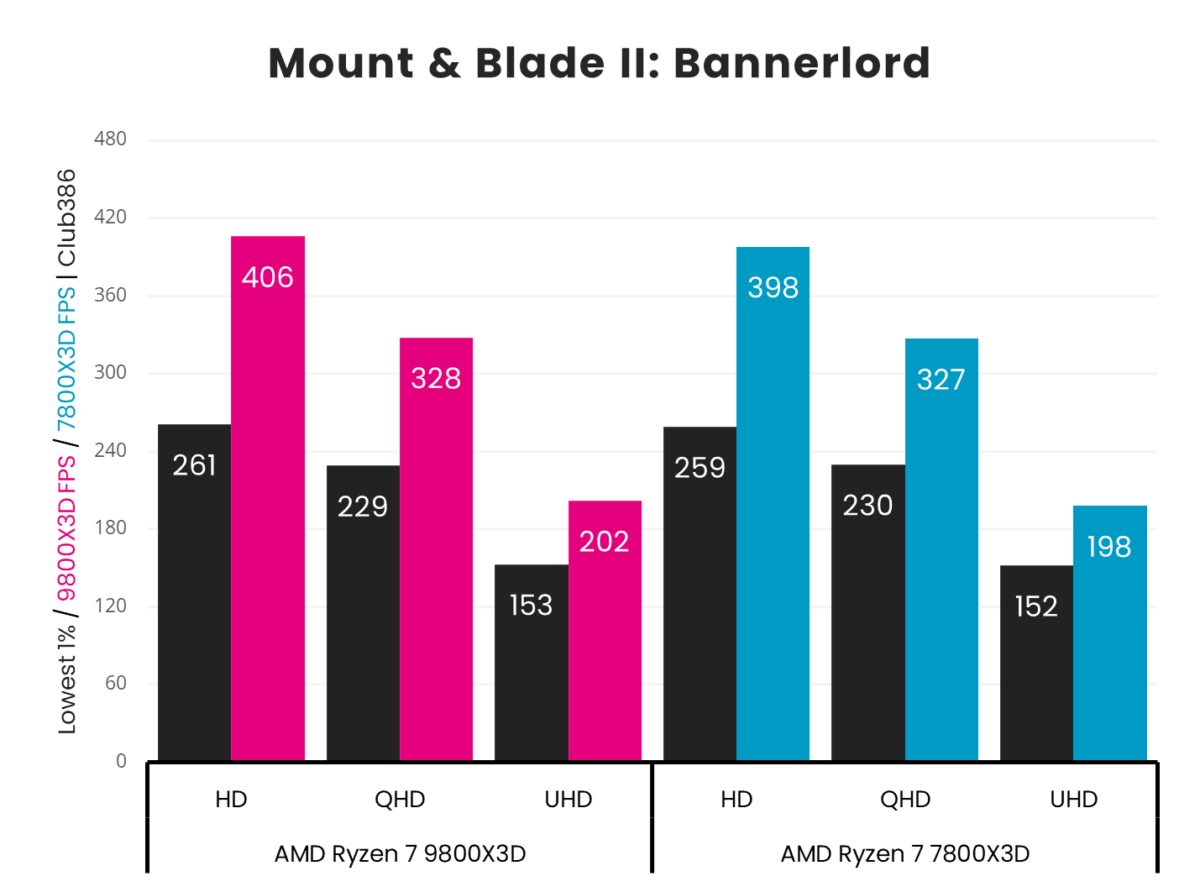
A little extra at FHD and QHD is most welcome.
Efficiency And Value
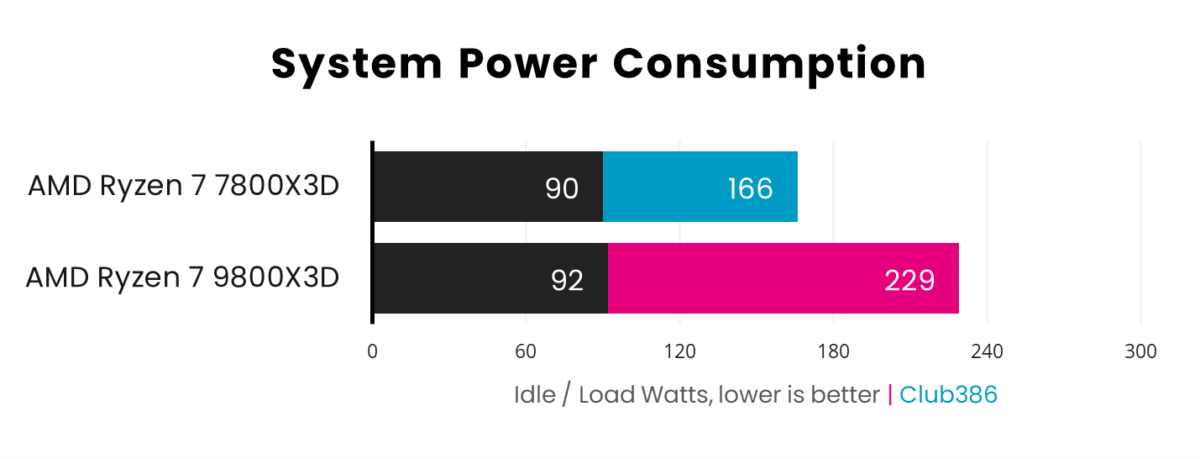
I’ve spoken at length about how Ryzen 7 9800X3D extracts more performance by using Zen 5 architecture to a fuller degree. Greater residence at higher frequencies and increased voltage over the last generation is embodied in substantially greater power draw when running Cinebench 2024 for 10 minutes.
But let me be clear, even a system-wide 229W is nothing to concern yourself about. Any decent cooler tames the CPU easily.
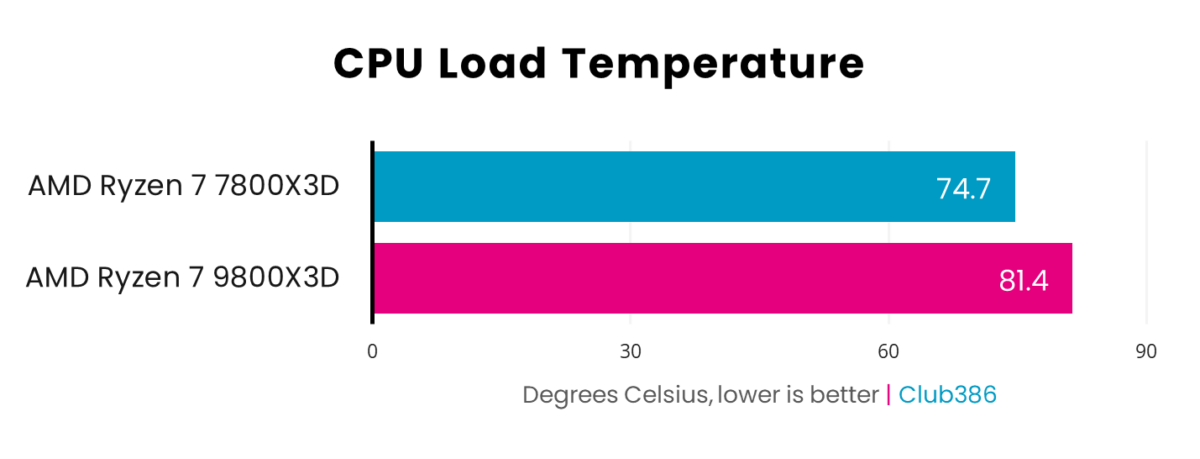
38% higher system-wide power consumptions results in temperature increasing by only 6.7°C. I’d say that’s a pretty good return.
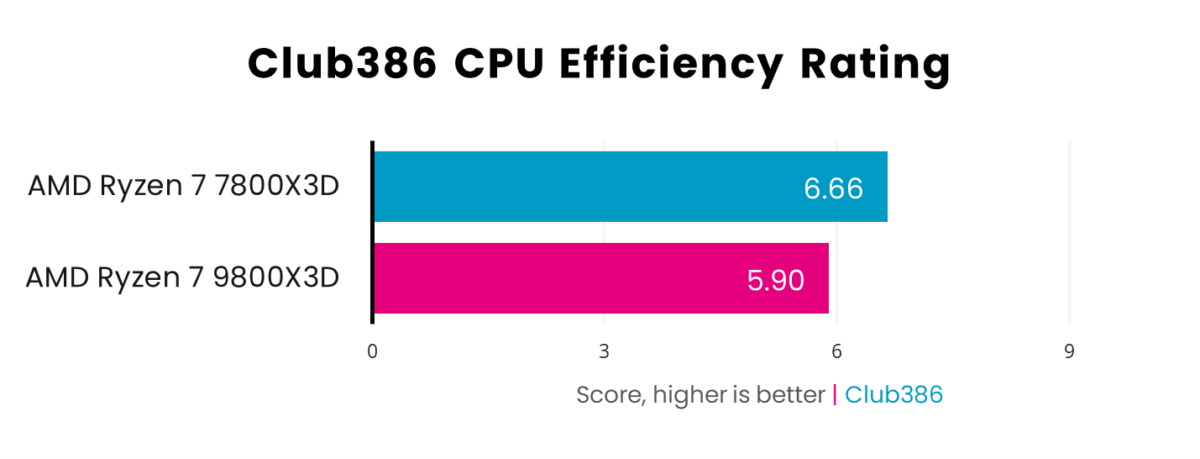
Here I divide the aforementioned Cinebench 2024 multi-core score by total system power consumption. Ryzen 7 7800X3D scores lower in the actual benchmark, though it’s better here as the power consumption falls by a larger degree.
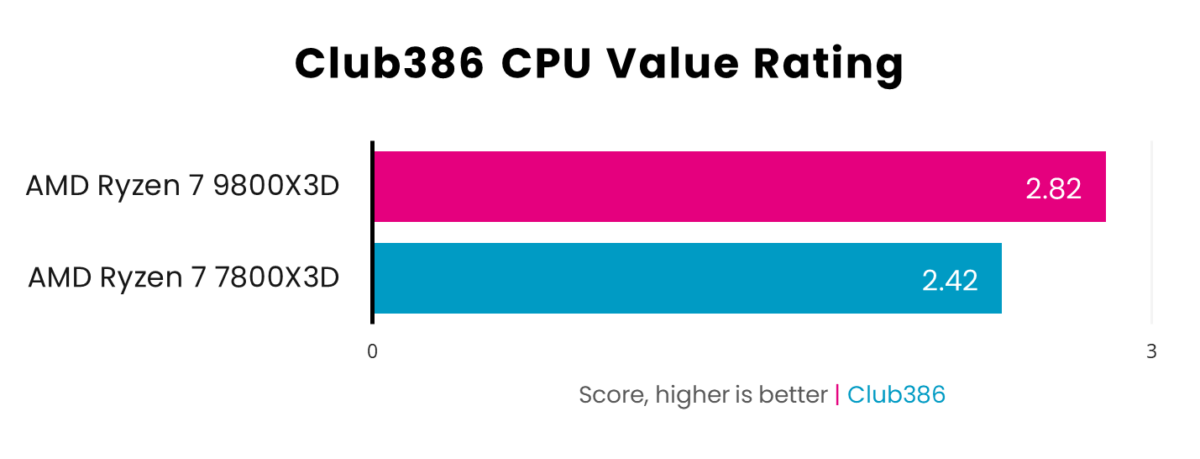
The only 9000 Series X3D chip doesn’t do too badly on the value side, derived by dividing the Cinebench 2024 score by retail cost.
Conclusion
Building a better Ryzen X3D chip is realised with the latest model. 9800X3D’s silicon repositioning enables it to run faster and with more voltage than ever before.
Now getting close to its 120W TDP, straight-up productivity performance is up to 40% faster than last-generation Ryzen 7 7800X3D. That’s a big deal for those looking for a well-rounded solution with no obvious weaknesses.
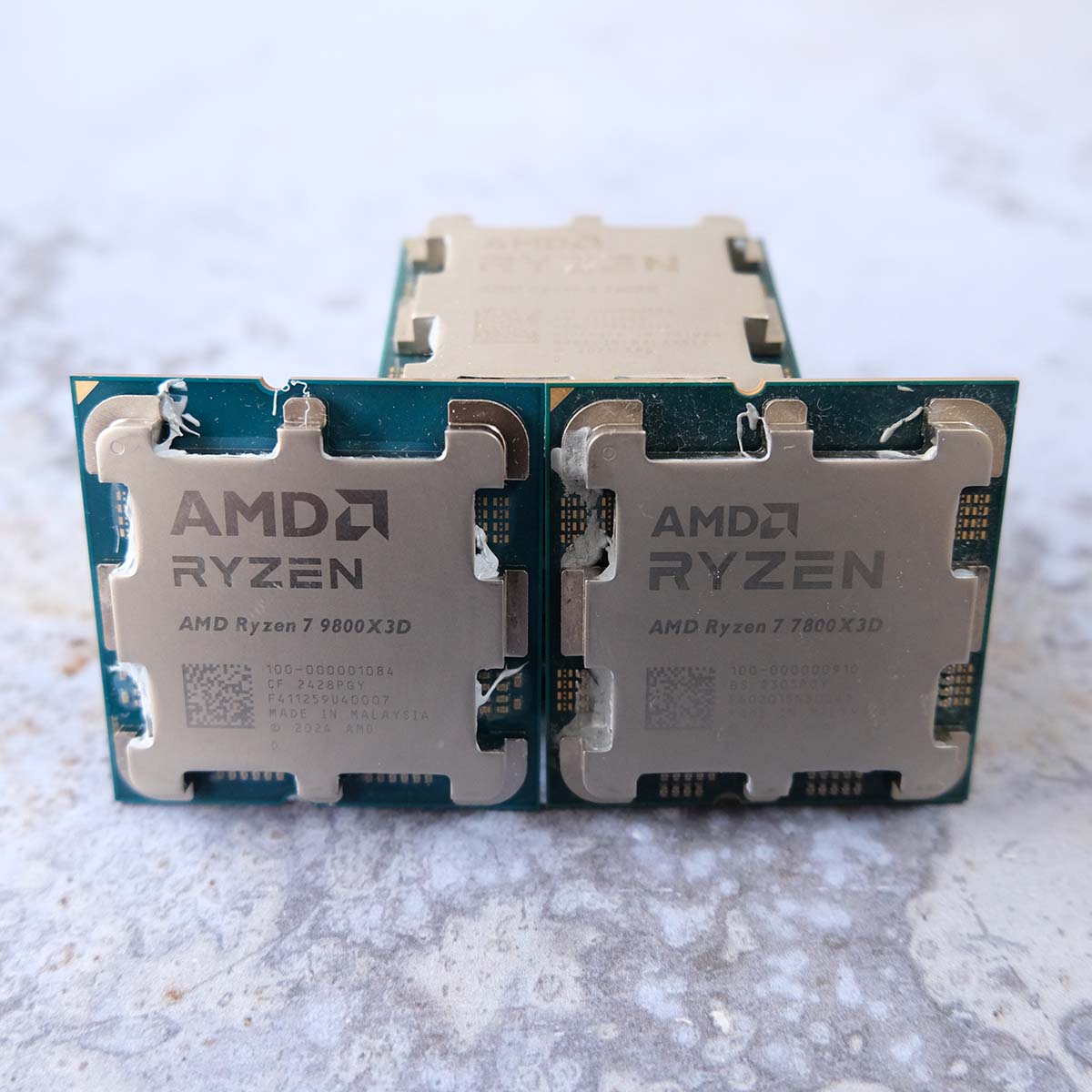
The same combination of frequency and improved IPC play their part in elevating Ryzen 7 9800X3D above its immediate predecessor for gaming.
Differences aren’t so pronounced, of course, but I am confident in saying this is the best consumer gaming chip on the market. Pair it with a GeForce RTX 4090 or upcoming RTX 5090 to see it really fly.
Recent price increases of X3D chips help to sweeten 9800X3D’s appeal. Coming in at the same £450 as its two 8C16T predecessors, I can’t fairly complain about cost.
AMD’s Ryzen X3D portfolio is niche purpose. If you happen to be a gamer that loves every frame possible, do your system a favour and buy the Ryzen 7 9800X3D.
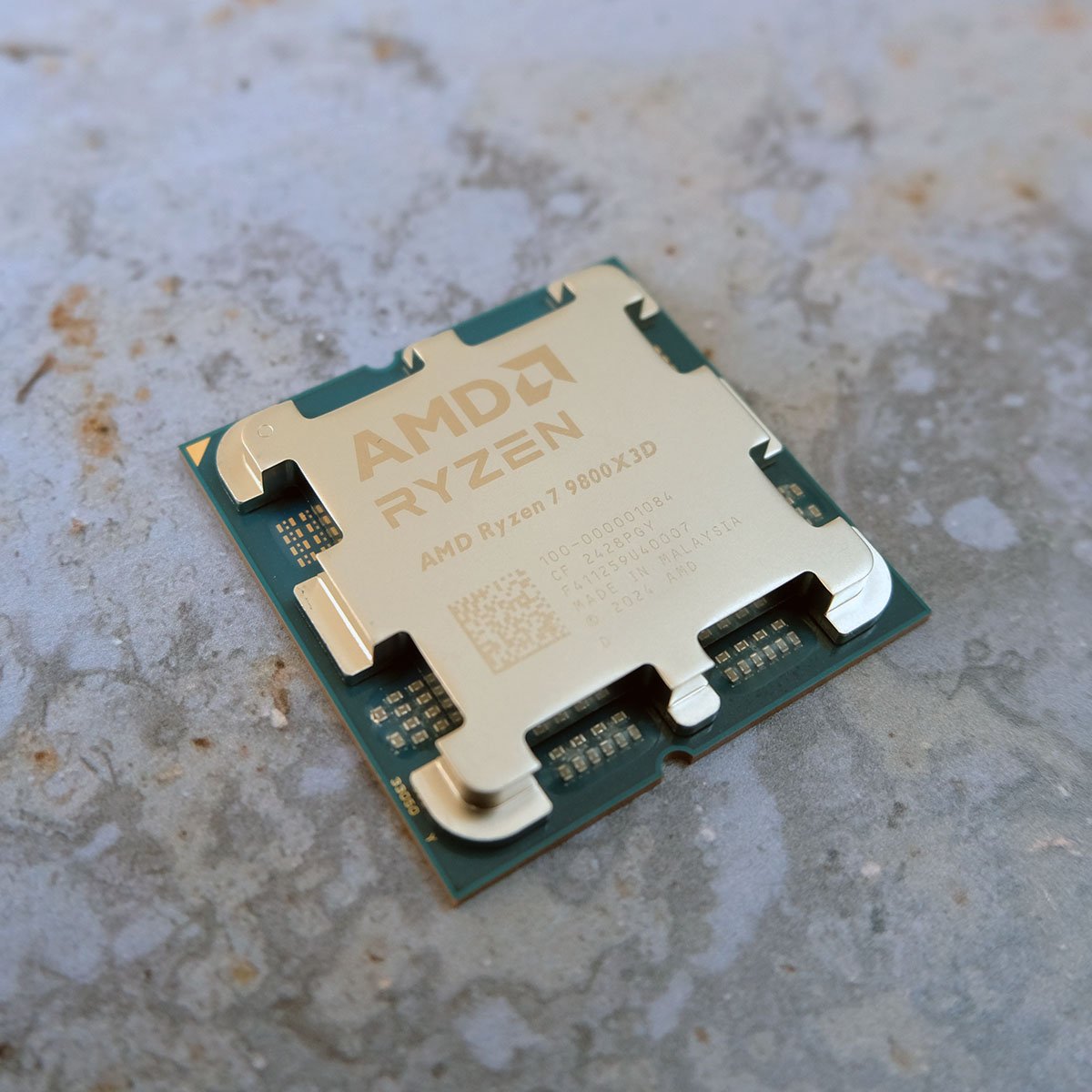
AMD Ryzen 7 9800X3D
The fastest gaming chip on the market, Ryzen 7 9800X3D stakes an enviable claim to be in your next system build. Read our review.
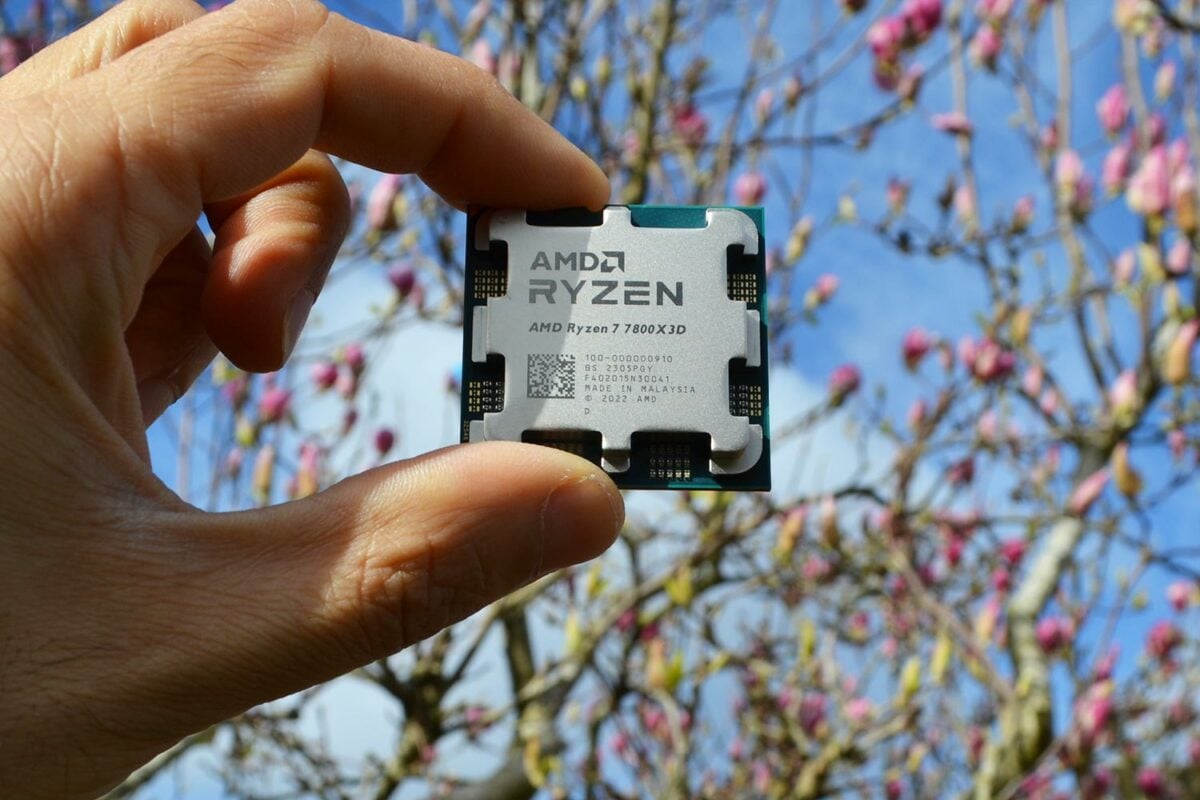
AMD Ryzen 7 7800X3D
Performance-boosting X3D cache comes to the Ryzen 7000 Series. A great choice for gamers who value every fps. Read our review.


